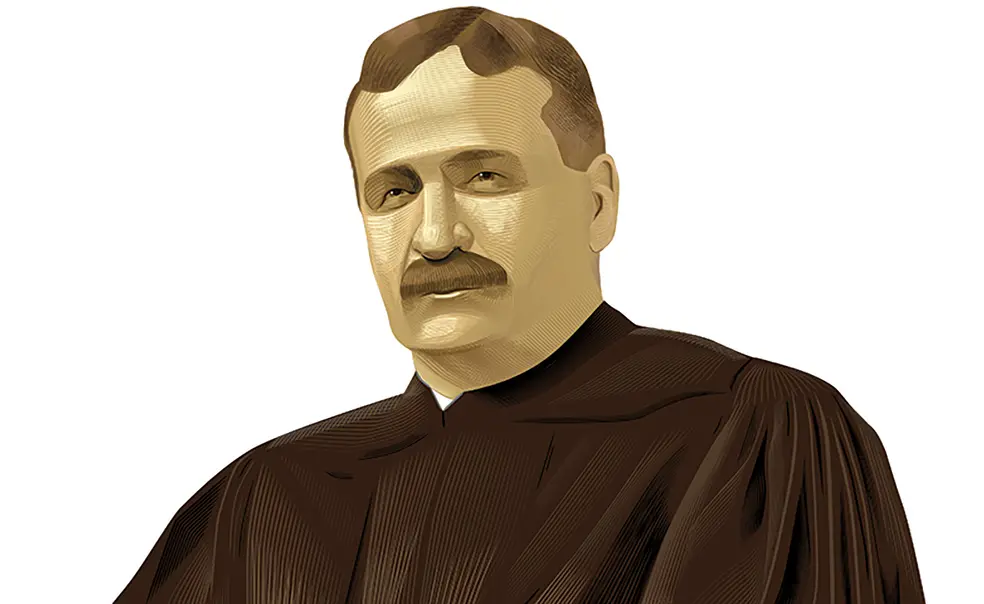Math Be Damned, He Fell Upward Through a Career in Medicine
Princeton Portrait: John Finney 1884 (1863-1942)
Those who believe universities today coddle students with grade inflation might consider the example of John Finney 1884, who, in his sophomore year, visited the head of the Department of Mathematics, John Duffield, to talk about his fear that he would fail his upcoming math exam.
“What do you expect to do upon leaving college?” Duffield asked, according to Finney’s autobiography, A Surgeon’s Life.
“Study medicine,” Finney said, “if I ever get through mathematics.”
“Well, I don’t believe you will need much mathematics in the study of medicine, will you?”
“I hope not, sir, as it would certainly spoil it for me if it did.”
Finney accidentally set his first patient, whom he was treating for a stomachache, on fire.
“Well, John, now strictly between ourselves, you go on back to your room and stop worrying. Take the final examination when the time comes, do the best you can, and you can count upon a final grade of 80 in mathematics.”
After graduating with the requisite good marks, Finney went to medical school at Harvard. This was a time of transition for the medical profession, when old ways were warring with new. Doctors didn’t believe the proposal of one emeritus Harvard professor, Oliver Wendell Holmes Sr., that they were causing outbreaks of childbed fever by not cleaning their hands enough — which later proved to be true. Then again, doctors did clean their hands, using mercury bichloride — which turned out to cause mercury poisoning.
Finney accidentally set his first patient, whom he was treating for a stomachache, on fire. (He was trying something called “dry cupping,” which entailed burning a splash of alcohol dry in a glass, then applying the hot glass to the patient’s body. He spilled the burning alcohol.) That was the inauguration of a career filled with humorous and odd incidents, medicine being the most human of sciences.
The first hospital he worked at, Massachusetts General, sterilized surgical instruments by putting them in the oven at a local bakery, where they baked alongside the bread; he left them in the oven too long and turned their wooden handles to charcoal. Once, when he assisted at a difficult birth, a trainee nurse fled the room; when another nurse found her and asked what was wrong, she said, overcome with emotion, “Oh, isn’t it dreadful, dreadful! I’ll send back my engagement ring immediately!” When he diagnosed another woman with gallstones, she cried, clasping her hands, “Oh! Doctor, doctor, don’t tell me that I must be operated on. I have just become a widow, and I do so want to live.”
In 1889, Finney moved to the Johns Hopkins Hospital, where he witnessed the introduction of rubber gloves in surgery. (PPE, or personal protective equipment, as we say in this not-quite-post-pandemic age.) His supervisor, Dr. William Halsted, invented them, so Finney was among the first to wear this lifesaving piece of equipment.
Halsted was in love with Caroline Hampton, the head nurse in the operating room. But she had to stop working in the operating room because the chemicals everyone used to sterilize their hands, carbolic acid and mercury bichloride, burned her skin so badly. Halsted, who longed to have her back, ordered from a maker of rubber goods a custom pair of fine rubber gloves to save her hands. Hampton returned to the operating room — she wound up marrying Halsted — and soon, everyone was wearing the gloves, which saved countless lives. Thus, Finney later wrote, “Venus came to the aid of Asclepius.”
In 1913, Finney crowned a life of honors by becoming the first president of the American College of Surgeons. Which just goes to show that a Princeton man can do anything, long division be damned.










1 Response
Don Cousar ’77
1 Year AgoAnother Famous Finney Story
I was surprised that this piece neglected to mention that J.M.T. Finney was offered the presidency of Princeton when Woodrow Wilson 1879 resigned the job in 1910. He describes the episode in detail in A Surgeon’s Life (pp. 237-239). After receiving wildly conflicting advice from his closest friends, he took a day off for introspection, while duck hunting alone on the Chesapeake. He turned the job down and John G. Hibben 1882 became president of Princeton.